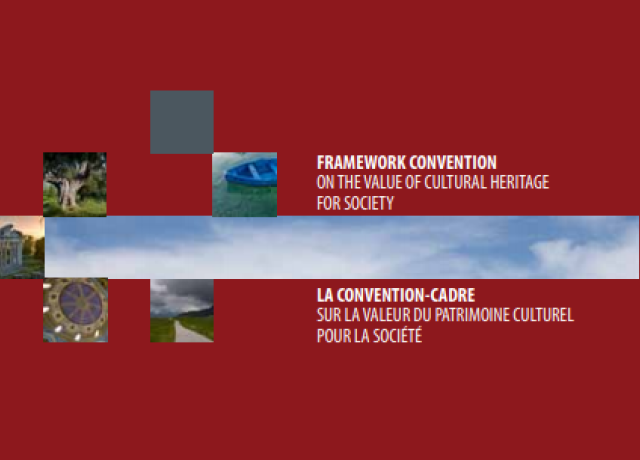The Next Steps for the Faro Convention Action Plan
The Next Steps for the Faro Convention Action Plan
Spotlighted as one of the key themes of the 2016 European Heritage Days, the Faro Convention continues to inspire and support heritage communities across Europe.
Two years ago, the remarkable work of local heritage groups and Faro communities was promoted through thousands of European Heritage Days events. Visitors had a chance to visit and learn about historic places and objects that were preserved thanks to heritage communities.
Today, we are seeing an even a greater community involvement in heritage and even more successful implementations of the Faro Convention Action Plan. Dedicated to empowering local communities for a more active participation in heritage preservation, enhancement, and governance, the Faro Convention is redefining the European heritage landscape.
Some of the most fascinating stories on its successful implementations are featured in this video:
The video offers a wide array of perspectives on the values of the Faro Convention. It features the Council of Europe Faro experts and representatives of heritage communities who helped bring the action plan to life and who are all united in the understanding of the benefits of the Faro Convention. With a set of initiatives and projects focused on improving the overall quality of life of local communities, the convention provides a more democratic and unifying approach compared to the traditional preservation methods.
The key difference is in the fact it focuses on the needs of local communities and on using heritage as a means of bridging the gaps, uniting people, and giving local communities more important roles in the decision-making and action-implementation processes.
Communities that have implemented the Faro Action Plan to solve some of the most significant cultural and heritage issues emphasize different benefits of the Faro Convention action plan. Providing support and help in understanding of the specific steps of implementation, this plan makes them part of a constructive discussion that provides diversity of insight that is united in one goal – making decisions about the past for the future of the people. As pointed out by one of the speakers in the video:
“From the beginning, we worked in total harmony with this European network, the Faro Convention network. We are very proud to be part of it, sharing our experiences and also learning from others’ experiences. In fact, it feels like this community speaks the same language, we’re united in a kind of Esperanto, that is the value we attribute to our heritage, a value that in its essence is a real common code of Europe.”
Similarly, CoE experts state that providing a fresh perspective on heritage represents one of the most important objectives of the Faro Convention.
Faro Action Plan stands for an ongoing process of refining the definition of heritage by considering it from a social, economic and political viewpoint. Its best practices and objectives are continuously revised and expanded based on community experiences. By enabling heritage communities to address societal challenges through the role of heritage, Faro Action Plan puts human rights and democracy principles into practice while resolving local, national and international societal issues.
